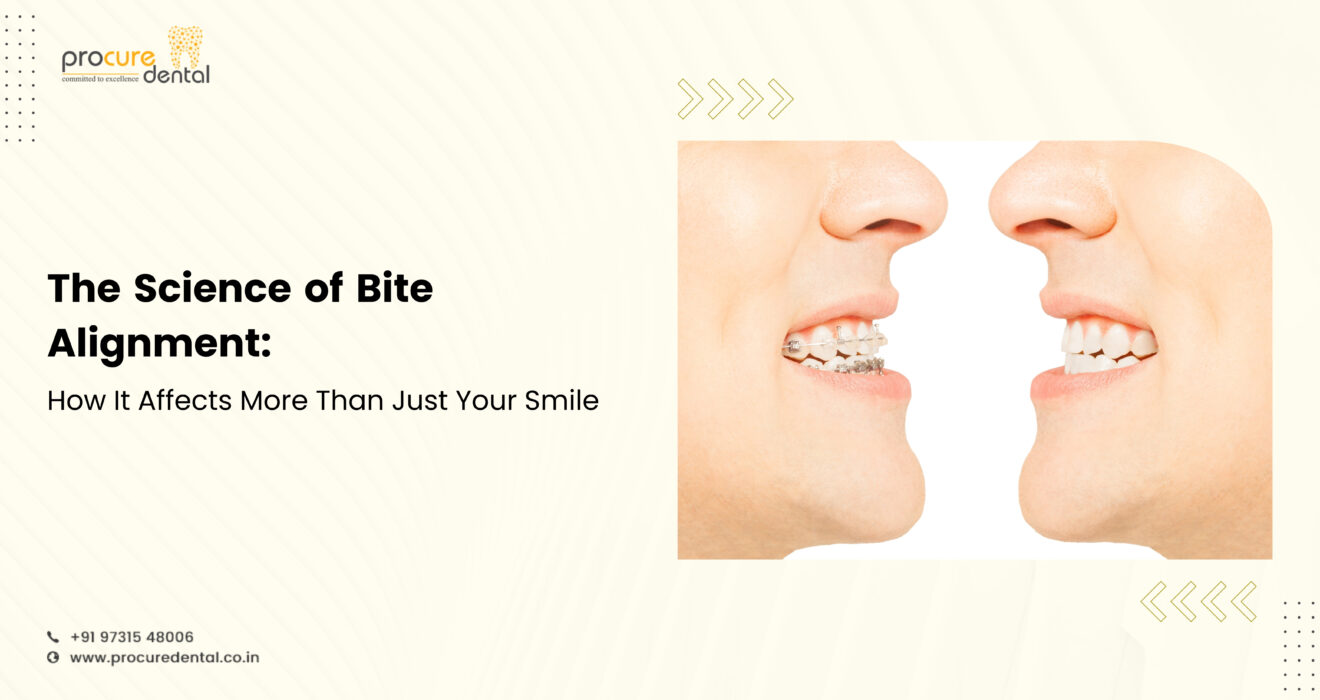The Science of Bite Alignment: More Than Just a Pretty Smile
The Hidden Power of Your Bite
We usually picture straight, white teeth gleaming in the sunlight when we think about a perfect smile. But what if I told you that your bite—how your upper and lower teeth come together—is a silent force impacting far more than aesthetics? That’s right! Your bite alignment (or misalignment) has a ripple effect on everything from headaches to posture, digestion, and even mental health. Let’s bite into the science of it all.
Your Bite: A Balancing Act of Precision
Your jaw is a marvel of engineering. It’s designed to fit together in a way that distributes force evenly across your teeth when you chew, speak, and even breathe. Ideally, your bite should allow your teeth to function like gears in a well-oiled machine. But when that alignment is off—even slightly—it’s like a car with misaligned wheels: things start to wear down, creak, and eventually, break.
The Domino Effect of a Bad Bite
A misaligned bite (technically called malocclusion) is more than just an orthodontic concern. Here’s how it wreaks havoc in ways you might not expect:
- Chronic Headaches & Jaw Pain – An uneven bite strains the jaw muscles and temporomandibular joints (TMJ), leading to tension headaches, migraines, and even earaches.
- Neck & Shoulder Tension – Your jaw is connected to your head, which is balanced by your neck and shoulders. If your bite is misaligned, your body compensates, leading to muscle tightness and pain.
- Digestive Issues – Chewing is the first step in digestion. If your bite isn’t working correctly, your food isn’t broken down efficiently, forcing your stomach to work harder and potentially leading to bloating, acid reflux, and nutrient absorption issues.
- Speech & Breathing Problems—Have you ever heard someone struggle with certain sounds? A bad bite can alter tongue placement, affecting pronunciation. It can also impact breathing, contributing to snoring and even sleep apnea.
- Premature Tooth Wear & Damage – Uneven pressure on your teeth leads to excessive wear, cracks, and even tooth loss. This isn’t just a cosmetic issue—it’s an expensive problem that requires dental intervention.
The Mind-Body Connection: How Your Bite Affects Mental Health
You probably didn’t expect that your bite can influence your mental well-being. Chronic jaw tension can keep your nervous system in a constant state of stress, triggering anxiety, restlessness, and even sleep disturbances. If you wake up exhausted despite a whole night’s sleep, your bite alignment could be the culprit!
What Can You Do About It?
If you suspect your bite is causing issues, don’t ignore it! Here are some steps to take:
- Visit a Dentist or Orthodontist – They can assess your bite and recommend braces, Invisalign, or even minor adjustments to improve alignment.
- Practice Jaw Exercises – Gentle jaw stretches and massages can relieve tension and improve mobility.
- Be Mindful of Posture – Your head and neck alignment is crucial in how your jaw functions. Avoid slouching and keep screens at eye level.
- Consider a Night Guard – If you grind your teeth (bruxism), a custom night guard can protect your teeth and reduce strain on your jaw.
- Chew Mindfully – Avoid chewing gum excessively, and try eating on both sides of your mouth to maintain balance.
Conclusion: It’s More Than Just Teeth
Your bite is a key player in your overall health. From reducing pain to improving digestion and mental clarity, aligning your bite means aligning your whole self. So next time you flash that confident smile, remember—it’s not just about looking good; it’s about feeling great, too!



